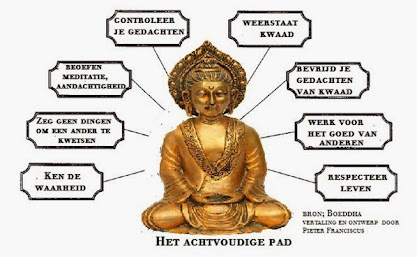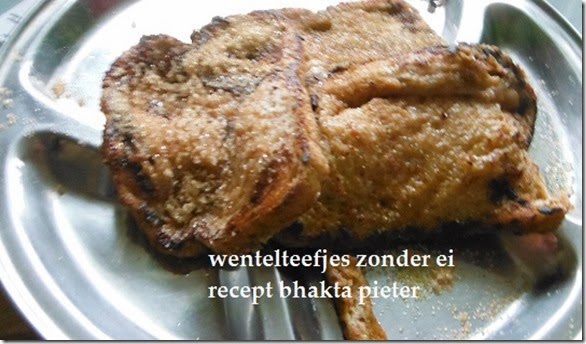BG 15.2: The branches of this tree extend downward and upward, nourished by the three modes of material nature. The twigs are the objects of the senses. This tree also has roots going down, and these are bound to the fruitive actions of human society.
BG 15.3-4: The real form of this tree cannot be perceived in this world. No one can understand where it ends, where it begins, or where its foundation is. But with determination one must cut down this strongly rooted tree with the weapon of detachment. Thereafter, one must seek that place from which, having gone, one never returns, and there surrender to that Supreme Personality of Godhead from whom everything began and from whom everything has extended since time immemorial.
BG 15.5: Those who are free from false prestige, illusion and false association, who understand the eternal, who are done with material lust, who are freed from the dualities of happiness and distress, and who, unbewildered, know how to surrender unto the Supreme Person attain to that eternal kingdom.
BG 15.6: That supreme abode of Mine is not illumined by the sun or moon, nor by fire or electricity. Those who reach it never return to this material world.
BG 15.7: The living entities in this conditioned world are My eternal fragmental parts. Due to conditioned life, they are struggling very hard with the six senses, which include the mind.
BG 15.8: The living entity in the material world carries his different conceptions of life from one body to another as the air carries aromas. Thus he takes one kind of body and again quits it to take another.
BG 15.9: The living entity, thus taking another gross body, obtains a certain type of ear, eye, tongue, nose and sense of touch, which are grouped about the mind. He thus enjoys a particular set of sense objects.
BG 15.10: The foolish cannot understand how a living entity can quit his body, nor can they understand what sort of body he enjoys under the spell of the modes of nature. But one whose eyes are trained in knowledge can see all this.
BG 15.11: The endeavoring transcendentalists, who are situated in self-realization, can see all this clearly. But those whose minds are not developed and who are not situated in self-realization cannot see what is taking place, though they may try to.
BG 15.12: The splendor of the sun, which dissipates the darkness of this whole world, comes from Me. And the splendor of the moon and the splendor of fire are also from Me.
BG 15.13: I enter into each planet, and by My energy they stay in orbit. I become the moon and thereby supply the juice of life to all vegetables.
BG 15.14: I am the fire of digestion in the bodies of all living entities, and I join with the air of life, outgoing and incoming, to digest the four kinds of foodstuff.
BG 15.15: I am seated in everyone's heart, and from Me come remembrance, knowledge and forgetfulness. By all the Vedas, I am to be known. Indeed, I am the compiler of Vedānta, and I am the knower of the Vedas.
BG 15.16: There are two classes of beings, the fallible and the infallible. In the material world every living entity is fallible, and in the spiritual world every living entity is called infallible.
BG 15.17: Besides these two, there is the greatest living personality, the Supreme Soul, the imperishable Lord Himself, who has entered the three worlds and is maintaining them.
BG 15.18: Because I am transcendental, beyond both the fallible and the infallible, and because I am the greatest, I am celebrated both in the world and in the Vedas as that Supreme Person.
BG 15.19: Whoever knows Me as the Supreme Personality of Godhead, without doubting, is the knower of everything. He therefore engages himself in full devotional service to Me, O son of Bharata.
BG 15.20: This is the most confidential part of the Vedic scriptures, O sinless one, and it is disclosed now by Me. Whoever understands this will become wise, and his endeavors will know perfection.


 Voor mij is het elke dag vrouwendag, Ik eer zelf vrouwelijke goden, vaak godinnen genaamd, wat ik zelf verkeerd weergegeven vind omdat deze spiritueel zijn, en niet wat men er door gescheiden of materiële denkwijze er van maakt, het moederlijke of vrouwelijke zijn zielen eigenschappen.. Innerlijk zijn wij allemaal gelijk, een ziel, of spirituele energie, met dezelfde eigenschappen, men moet ze alleen leren ontwikkelen Maar men heeft de vrouw ooit tot moeder zijn verkozen, wat een eretitel is. Omdat de vrouw als de Aarde is Gaya, leven voortbrengend, de moeder, en de eerste leraar, in het leven van de mens, in materieel en spiritueel opzicht. Moederschap is wat de meeste mensen, ook vrouwen als enig ideaal voor een vrouw zijn gaan zien.
Voor mij is het elke dag vrouwendag, Ik eer zelf vrouwelijke goden, vaak godinnen genaamd, wat ik zelf verkeerd weergegeven vind omdat deze spiritueel zijn, en niet wat men er door gescheiden of materiële denkwijze er van maakt, het moederlijke of vrouwelijke zijn zielen eigenschappen.. Innerlijk zijn wij allemaal gelijk, een ziel, of spirituele energie, met dezelfde eigenschappen, men moet ze alleen leren ontwikkelen Maar men heeft de vrouw ooit tot moeder zijn verkozen, wat een eretitel is. Omdat de vrouw als de Aarde is Gaya, leven voortbrengend, de moeder, en de eerste leraar, in het leven van de mens, in materieel en spiritueel opzicht. Moederschap is wat de meeste mensen, ook vrouwen als enig ideaal voor een vrouw zijn gaan zien.